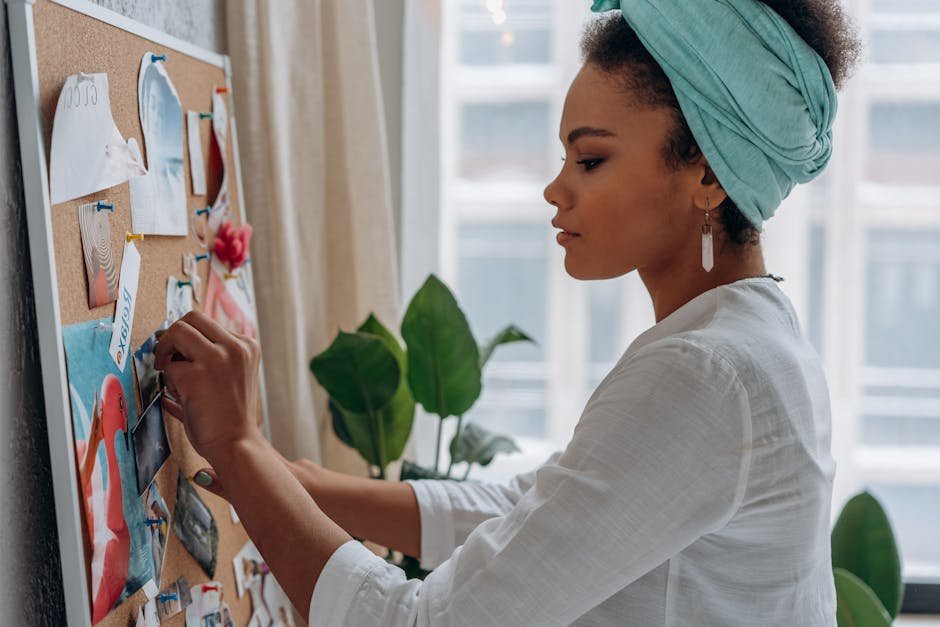Introduction
Self-awareness in partnerships is like that one quirky spice you didn’t know your relationship stew needed, but once you add it, it transforms the whole dish. Little did you know, there was a rich tapestry of delicious possibilities lurking right under your nose. The concept of self-awareness, though portrayed by some as a buzzword, is genuinely pivotal in creating and maintaining successful relationships. Whether it’s a coffee date with your best friend or a long walk with your life partner, understanding oneself can open avenues to deeper, more meaningful connections.
Why Does Self-awareness Matter?
Now, imagine you’re at a party, and suddenly you’re the talk of the night. But it feels more like a surprise roast than a dream talent show. Self-awareness helps you adjust the lights of your personality show. It lets you highlight the high notes and smooth over the cringy bits. Integrating this trait into your partnerships invites introspection. You address what you bring to the table and recognize why it matters. Think about it like a GPS for your emotions. It guides you around ego-driven roadblocks and steers you towards the scenic routes of understanding and empathy.
Self-awareness acts like an internal compass. It helps you understand your feelings and reactions. This understanding forms a strong base for any partnership. When you know yourself well, you engage more honestly and transparently with those around you. This means fewer misunderstandings and more meaningful exchanges.
The Psychological Ingredients of Self-awareness
Before diving deep into how self-awareness can transform your partnerships, let’s brew a little potion from the realms of psychology. Self-awareness is essentially divided into two elements: internal and external. Internal self-awareness refers to how clearly we view our own values, passions, aspirations, and impact on others, while external self-awareness involves understanding how other people see us.
Internal Self-awareness
Think of internal self-awareness as your personal backstage pass. It involves understanding your triggers, preferences, and core beliefs. When you know what makes you tick, you’re better equipped to handle situations that can rock the relationship boat. This comes from a combination of emotional intelligence, introspection, and reflection—essentially becoming your own Sherlock Holmes without the drama.
Discover what drives you. Why do you react in certain ways? By reflecting on these questions, you gain a clearer picture of yourself. Recognizing your emotions helps prevent unintended reactions. For example, if you know anger rises during stressful discussions, you can prepare. This foreknowledge allows you to remain calm, promoting healthy dialogue.
External Self-awareness
On the flip side, external self-awareness is like being the director of a play, knowing how your performance affects the audience. It’s about grasping how we are perceived, which can enhance our relational skills. By acknowledging and adjusting based on these perceptions, we can improve how we communicate and connect with partners or friends.
External self-awareness means understanding how others view you. This understanding helps bridge gaps. By seeing ourselves through the eyes of others, we adjust our behaviors to match the needs of the relationship. For instance, if feedback suggests you’re aloof, work on being warmer. This shift can improve how you engage with people.
The Role of Self-awareness in Partnerships
When self-awareness meets the realm of partnerships, it kicks open doors for potential growth, both as individuals and within the relationship. We’re not just talking about romantic partners but extending this to platonic friendships, family connections, and even professional relationships. Let’s unwrap this narrative further.
Fostering Empathy and Understanding
Self-awareness in partnerships helps to nurture empathy and understanding. When you acknowledge and comprehend your feelings, you become more attuned to the emotions of others. This empathetic approach fosters a psychological safe space where partners feel valued and understood—almost like finding your Secret Santa nailed the perfect present. Empathy arises when you understand yourself. When you know your feelings, it’s easier to connect with others. You understand when someone feels stressed or upset. By recognizing and sharing feelings, partners create a bond based on mutual understanding.
Consider a situation where someone feels overwhelmed. A partner with self-awareness recognizes the signs. Instead of reacting negatively, they offer support, creating an environment of trust and care. This action strengthens the partnership, bringing people closer.
Better Communication
Ever felt like your words during disagreements are like disappearing ink? With heightened self-awareness, communication becomes clearer and more effective. It’s about being able to articulate your thoughts and recognizing when to talk and when to listen. This proactive listening enhances collaboration and cooperation, ensuring you both dance to the same beat instead of awkwardly stepping on each other’s toes.
Self-awareness leads to honest expression. You speak with clarity, making conversations more productive. When you understand emotions, words come naturally. You avoid defensive language and instead foster open discussions. This approach prevents conflicts from escalating. For example, if a partner shares concerns, respond with understanding rather than defensiveness. Acknowledge their perspective. This response shows respect and encourages further dialogue.
Building Trust and Reducing Conflict
Self-awareness acts as relationship glue, building trust and reducing conflicts. By understanding our limitations and strengths, we can better navigate tough situations. This way, partners become allies, ready to tackle challenges together with complementary strengths. Trust develops when partners communicate openly. Knowing one’s strengths and weaknesses allows for honest discussions. You admit areas needing growth and seek help when needed. This transparency fosters a strong foundation built on trust.
In challenging times, self-awareness helps diffuse tension. Picture a heated argument, where both parties feel unheard. A partner with self-awareness takes a step back. They listen actively and work to resolve the issue without escalating anger. This approach turns adversaries into allies.
Enabling Personal Growth
Within partnerships, self-awareness opens doors for personal growth. By recognizing our own needs and aspirations, we avoid the common pitfall of losing oneself in a relationship. This ensures that both partners grow as individuals, bringing new experiences and insights back into the relationship, much like returning from an urban hike with a newfound appreciation for nature.
A strong partnership encourages self-improvement. You understand your goals and work towards achieving them. Sharing your journey with your partner creates shared experiences and deepens connections. Imagine setting personal goals, like learning a new skill or adopting a healthier lifestyle. Communicating these goals with your partner invites support and motivates growth. As each person evolves, the relationship thrives, fueled by shared experiences and insights.
Cultivating Self-awareness in Your Partnerships
So, how do you incorporate this magic self-awareness into the everyday recipe of life? It doesn’t require a magic wand, just intentionality and some patience in the crockpot of personal development.
Practice Mindfulness
Mindfulness is about living in the moment. It’s like savoring a cup of morning coffee instead of gulping it down while searching for keys. Mindfulness exercises such as meditation, journaling, or plain focused breathing help you tune into your emotions, reactions, and ultimately your self-awareness.
When you practice mindfulness, you develop the habit of observing your thoughts and emotions without judgment. This practice helps you respond rather than react to situations. Imagine taking a few minutes daily to sit quietly and breathe. Focus on your breath, noticing each inhale and exhale. Over time, this simple act enhances awareness, helping you become more present in interactions.
Sources are not provided in this format.










